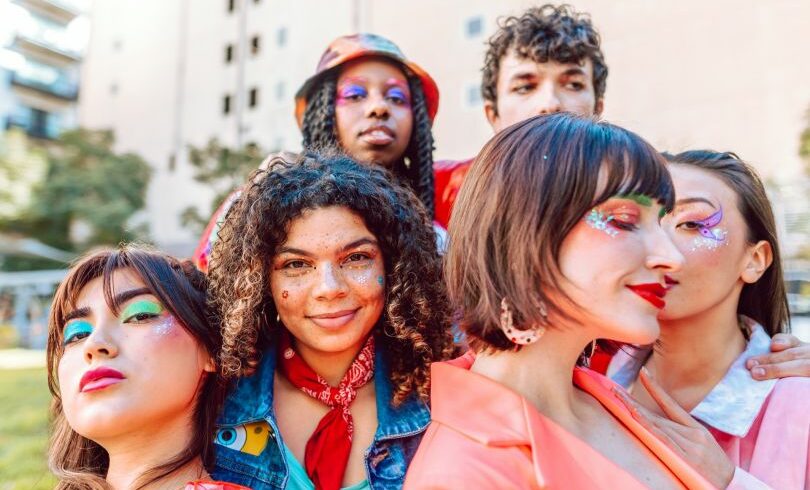
Marketing To Gen Z: How To Get It Right
Article Highlights
- The algorithm should be your new best friend
- IRL vs URL
- Traditional metrics are still important, but they’re not everything
Be the first to access new posts and exclusive content
Brands, it’s time to get with the programme: Gen Z are here, and they’re shaking up the way we shop, interact and communicate.
As a cohort with a whopping $360 billion in purchasing power, securing the loyalty of these digitally-native whippersnappers should be high priority for any brand.
However, as we know, marketing is a layered (and often tricky) process. To reach Gen Z successfully, you need to spend time in their world and understand what makes them tick.
In this blog, we share three top tips from the latest Voxburner guide How To Connect With Gen Z. Supported by exclusive data cherry-picked from YMS London, this is your exclusive teaser to help you capture Gen Z hearts (and their wallet spend…!).
The algorithm should be your new best friend
Remember 20 years ago, when millennials feared the world being taken over by robots, and worried about the intrusive nature of technology? Well, contrary to their generational counterparts, Gen Z are rather laissez-faire about the whole technology affair.
In fact, they’ve grown up with algorithms influencing pretty much every aspect of their lives. Whether it’s discovering new music, learning the headlines of the day or even finding a new romantic partner, these codes are shaping the lives of young consumers.
Brands shouldn’t fear the algorithm – they should be embracing it with open arms. The algorithm empowers brands to stay agile, responsive and tapped into the trends that Gen Z are loving. TikTok is especially relevant here – leverage the apps’ advertising features and collaborate with the influencers that Gen Z are embracing at the moment. Remember, these influencers don’t always have to have the biggest following counts; sometimes smaller is better, particularly when the influencer responds and interacts with their audience.
IRL vs URL
We often characterise Gen Z as being obsessed with the online world – but is this a stereotype that needs challenging? Kate Boekhurst, Business Director at Seed shared the following insight at YMS London:
“83% of Gen Z have a newfound appreciation for in-person events”.
She continued to say that “a day, a night, a moment, an hour: these can create memories for life, and they can have a real impact when it comes to brands”.
This ties into recent Voxburner research that saw young people sharing a new-found desire for experiential shopping experiences. Digital is convenient, yes, but there’s still something magical about IRL.

When it comes to marketing, we’re seeing a resurgence away from the omnipotence of online, and back towards in-person advertising. OOH media owner JCDecaux recently launched a programme to help brands engage with Gen Z through digital out-of-home (DOOH). The GENgage programme launched in 2023 to reach this digitally-native audience in the social spaces where they enjoy real-world engagement.
With data portraying that 87% of Gen Z desire multi-channel brand experiences, it’s a must for marketers to reach this demographic at different touch points. Digital out-of-home can be a powerful way to build trust between brand and consumer: these public screens are a far cry from targeted, secret ads. Furthermore, the main driver of consumption among Gen Z is “the search for truth in both a personal and communal form”. Hello, authenticity and transparency…
A great example is Spotify’s DOOH campaign for Spotify Wrapped.
Premium users were invited to submit their personal Wrapped stats to be shared very publicly in one of the six major foot traffic hubs in the world. We’re talking Times Square, Piccadilly Circus, Rosa-Luxembourg-Platz…

Brave, and brilliant!
The live visual featured the user’s profile photo, alongside their top artists, songs, genres and time spent listening. As Lucy Edwards, the Senior Consumer Marketing Manager at Spotify shared at YMS 2023, “every experience we create is thinking of the community first.”.
Even better if the said community listened to All Too Well (Taylor’s Version) 473 times in one year…
Traditional metrics are still important, but they’re not everything
Don’t worry, we’re not about to challenge the relevancy of Google Analytics. We’re just humbly suggesting that traditional metrics aren’t always representative of the work you’ve done.
At YMS, we were lucky to be joined on stage by Stephen Mai of Woo by ITV.
Stephen shared “Rather than framing everything on how you want the brand to be perceived, frame everything on how you want the brand and concept to make the audience feel. Using that impact as a measurement piece is very valuable”.

Belinda Boayake, Consumer Marketing Lead at Pinterest agreed, suggesting that direct ROI, for example, is not always reflective of how successful a campaign has been when it comes to brand development and brand love. “Hard numbers and figures are great – and important when it comes to pitching ideas or presenting outcomes to senior leaders, but embrace the tried and tested way of working a little more. Be playful, and have fun! That’s what Gen Z values most.”
Want more top tips? Check out the teaser of the guide here, or subscribe to our exclusive Gen Z community Voxburner+ for the full shebang!



